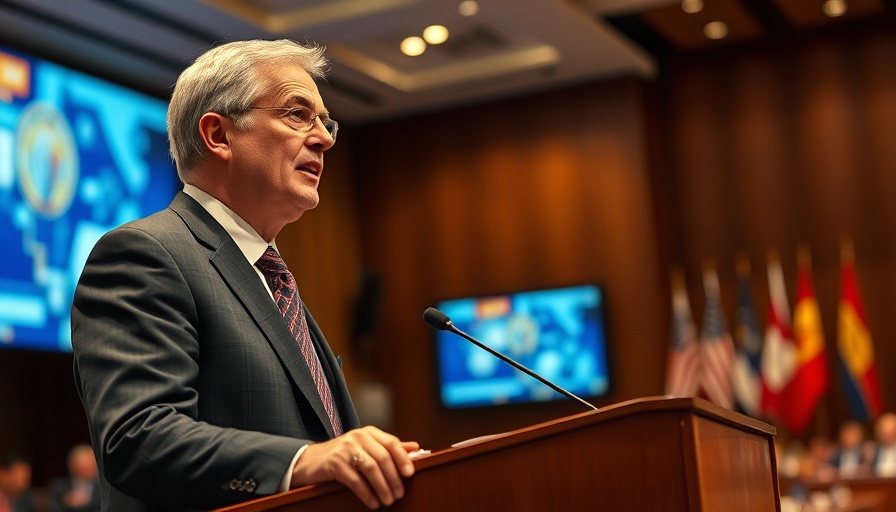
The 176th PAHO Session Starts with Focus on Health Crisis
The Pan American Health Organization (PAHO) commenced its 176th executive committee session in Washington, DC, with the aim of tackling significant health issues across the Americas. PAHO Director, Dr. Jarbas Barbosa, emphasized the necessity of collaboration and regional cooperation as central themes of the meeting. He recognized this session as a vital chance to address pressing health challenges that affect millions, such as immunization levels and disease outbreaks like yellow fever and measles.
Why Immunization is a Priority
During his opening address, Dr. Barbosa pointed out the alarming drop in immunization rates, which leads to increased risks of vaccine-preventable diseases. It reflects broader issues tied to health equity and access, which are critical in ensuring everyone's right to health, especially for marginalized communities in the Americas. This push for improved immunization coverage aligns with global sustainability targets aiming for better health outcomes.
Strategic Plans for Health Improvement
One of the key topics for discussion is the Proposed Strategic Plan for 2026-2031. This strategic effort seeks to adapt to local needs and focus more on integrated health services. Acknowledging the evolving nature of health challenges, Dr. Barbosa urged all member states to utilize this platform effectively to finalize the plan. By focusing on innovations and previous learnings, PAHO aims to enhance healthcare protocols.
Fighting Noncommunicable Diseases: An Urgent Agenda
The fight against noncommunicable diseases (NCDs), which include conditions like diabetes and heart disease, also takes center stage with the Action Plan on NCD Prevention and Control 2025-2030. This initiative seeks to decisively cut down premature mortality from NCDs, responding to Sustainable Development Goals targeting health improvement by 2030. Tackling NCDs not only prevents loss of life but also alleviates economic burdens on countries.
The Rising Health Challenges from Migration
Another significant aspect on the agenda is the new Strategy on Health and Migration for 2026-2031. With growing migratory flows impacting health services across member states, it’s essential to develop systems that can address the unique health needs of migrants and refugees. Dr. Barbosa expressed hope that by embracing the principle of Pan-Americanism, leaders can strengthen frameworks to ensure everyone benefits from health services.
A Call to Action: The Power of Collaboration
Throughout his speech, Dr. Barbosa reaffirmed PAHO's commitment to health equity, stressing that only through collaboration can the Americas build a healthier future. This call for unity shines a spotlight on Pan-Americanism, an ideology that champions solidarity among the diverse populations of the region. By working together, countries can leverage their collective strengths to combat health issues efficiently.
As the session continues, it is clear that the collaborative efforts of the region's leaders are crucial. The decisions made in this assembly will have far-reaching consequences. The hope is not just to strengthen health systems but to eliminate disparities and ensure that every individual in the Americas achieves the highest possible standard of health.
 Add Row
Add Row  Add
Add 




Write A Comment